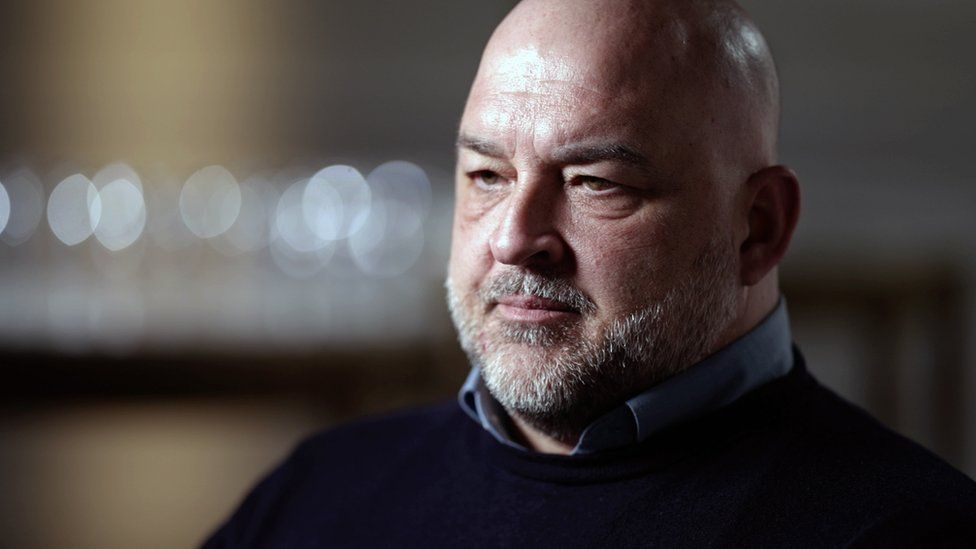Police anti-terror IT system was ‘not fit for purpose’ – former officer

A key intelligence database used by police to investigate extremists was “not fit for purpose” when introduced in 2014, a former counter-terrorism officer has told the BBC.
The officer, who retired in 2018, says the National Common Intelligence Application (NCIA) had serious flaws.
Counter Terrorism Policing says “substantial improvements” were made following a significant review after terror attacks in 2017, including at the Manchester Arena.
BBC Newsnight has collaborated with BuzzFeed News on a detailed investigation into problems with the IT system, which cost hundreds of millions of pounds and was designed to allow police forces across the UK to share secret intelligence seamlessly.
Former detective constable Tony Thorne, who was part of a pilot project in 2013, told the BBC the NCIA was known to be “clunky”, “clumsy” and to produce inconsistent results.
During the pilot, Mr Thorne said users sitting side-by-side at computer terminals were watched while they conducted identical searches. When these searches yielded different results Mr Thorne says he was immediately concerned.
“They came up with different data – the bio details that were coming back were completely different,” he said. “There was something wrong there.”
He told BBC Newsnight the 2013 trial also found that the system allowed data to be destroyed as users could accidentally overwrite it – and that there was no way of monitoring if any information had been altered.
Mr Thorne said he tested this by accessing an intelligence file. “I was able to go in and edit it, and it couldn’t be unedited. I said, ‘We shouldn’t be able to do that.'”
“To have [intelligence data] in one area is a fantastic thing – it can’t get lost, it backs up,” he continued, “but from the very start the application was just not fit for purpose.”
The NCIA system roll-out to police forces began in 2014. Delays meant the Metropolitan Police did not receive it until 2019, but it had been deployed to the north-west before the Manchester Arena bomb attack that killed 22 people on 22 May 2017.
A public inquiry into the bombing is still under way.
A government spokesperson told the BBC: “It is a matter for the chair of the Manchester Arena Inquiry to decide whether the systems Counter Terrorism Policing used impacted their ability to prevent the attack.”
The spokesperson added that the NCIA has “greatly enhanced” counter-terrorism work in the years since the bombing in 2017.
But Tony Thorne says it was rolled out too quickly and put to use before faults had been corrected.
“It should never have gone out,” he said.
Mr Thorne says he felt “physically sick” when he heard news bulletins about the Manchester Arena bombing, because he feared the faults he’d warned his bosses about in 2014 could have played a part in the failure to stop the attack.
“I couldn’t 100% say, ‘Yes, NCIA was the cause of it,’ but it’d be a factor,” he said.
Most of the evidence about intelligence handling was heard in secret at the inquiry. But lawyers for families of some of the victims said it was already clear from what had been made public that there were “multiple opportunities to uncover and prevent the outrage”.
- Members of Salman Abedi’s family were known supporters of the Libyan Islamic Fighting Group, proscribed in 2005 for links to al-Qaeda
- Four days before the attack, Abedi travelled back from Libya but wasn’t questioned
- On two occasions, MI5 failed to act on highly relevant intelligence received in the months before the attack. It was thought to involve criminality and its significance was not fully appreciated at the time
- Counter-terrorism police had 1,300 text messages on file which Abedi had exchanged with Abdalraouf Abdallah – who had been arrested for terrorism offences and would later be convicted. But police say they only identified Abedi by name after the attack
BBC Newsnight spoke to the father of the youngest person to be killed in the Manchester Arena bombing, Saffie Roussos. Andrew Roussos was deeply critical of counter-terrorism police and the security service MI5 when he gave evidence to the public inquiry.
He told the BBC: “If you don’t join the dots then how is our country going to be secure? We’re talking about who’s in front of you and the evidence you’re already looking through.
“He even states his name within that text message,” he continued, referring to the exchanges between Abedi and Abdallah, in which Abedi gave his full name and discussed martyrdom.
Mr Roussos praised Tony Thorne for raising his concerns: “I want to give him a hug. I want to shake his hand. I commend people that will come forward and say, ‘You know what, guys?’ This is wrong.”
Counter Terrorism Policing, who oversee the work of counter-terrorism units around the UK, did not deny that there had been significant problems with the NCIA database, but said that after 2017: “Thirty-two late-stage terror attacks have been disrupted and saved many lives”, adding that the “NCIA has been an essential tool in helping us achieve this”.
Tony Thorne says he has spoken out about the NCIA programme and the people who ran it in the interest of informing the public. He has not divulged anything which would be damaging to national security – nor given any information, intelligence or methods that would jeopardise or threaten national security.
Source: (BBC)

